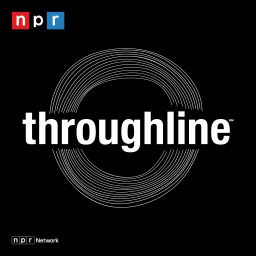
by The Religion, Race and Democracy Lab at the University of Virginia
We may imagine that the sacred is set apart from life, but religion is involved in every aspect of our day-to-day world. How we live together and apart. How we argue. How we flourish. The sacred is the profane.
Language
🇺🇲
Publishing Since
8/1/2019
Email Addresses
0 available
Phone Numbers
0 available

April 30, 2024
<p>In 2014, Virginia’s Dominion Energy announced it would be building a new pipeline intended to carry fracked methane from West Virginia to a storage facility in North Carolina. The planned route brought the pipeline right through Virginia’s rural Buckingham County, with a compressor station proposed near a historic Black church and cemetery in the small community of Union Hill.</p><p></p><p>Despite Dominion’s assurances that the pipeline and compressor station would be safe, a group of locals grew concerned — and began to fight back. Opposition to the pipeline forged a new group called <a href="https://www.friendsofbuckinghamva.org/">Friends of Buckingham</a>, built on the backbone of two very different local faith communities: Union Grove Missionary Baptist Church, a Black congregation with roots stretching back to Reconstruction, and the Satchidananda Ashram, an interfaith yoga community founded by the Swami Satchidananda Saraswati in 1986. Although they have fundamental doctrinal differences, the communities were united in their conviction that the pipeline would bring environmental harm to their county, and therefore must be stopped.</p><p> </p><p>This episode was made possible by a grant from the National Endowment for the Humanities. Special thanks to Erin Burke, Rebecca Bultman, and Devin Zuckerman for their help on this episode. This piece was reported for us by <a href="https://www.mollyborn.me/bio-1">Molly Born</a>, a journalist and producer who’s reported extensively on the legacy of fossil fuels in Appalachia. She previously reported a piece for the show on <a href="https://religionlab.virginia.edu/podcast/what-would-krishna/">a Hare Krishna community in West Virginia </a>wrestling with their decision to allow fracking on their land.</p>

April 8, 2024
Millions of Americans are traveling hundreds of miles for a chance to witness 2024’s total solar eclipse. As many eyes turn towards this rare event, we’re turning our attention to another wonder, one we sometimes take for granted: the night sky. Humans have a relationship with the moon and stars stretching back for millennia. Observing the night sky has given us practical things, like calendars and ways to navigate; but they also give us a sense of awe and wonder that can't be replicated. We’re joined once more by our colleague Kelsey Johnson to talk about how the night sky links us to the wider universe, and how pollution coming from land and space is threatening that ancient link.

March 26, 2024
As the climate crisis on Earth worsens, some Americans — including the world’s richest man, Elon Musk — have begun to think about a plan (and planet) B. They dream of escaping an increasing polluted Earth in favor of creating an advanced society on our nearest neighbor, Mars. To investigate the roots of our fascination with Mars, we headed to Lowell Observatory in Flagstaff, Arizona with our colleague Kelsey Johnson. Lowell has been the site of all sorts of important discoveries about our universe, but it was originally built by another very wealthy American to observe Mars and the advanced civilization he believed could thrive there. These observations kicked off many, many imagined versions of the Red Planet and the possible futures humans might have there. And our hosts speak with author Mary-Jane Rubenstein about how religious ideas still color the way we see the universe and Mars itself. Humans may leave Earth in numbers some day, but whatever happens, we won’t be leaving religion behind us.

Kenan Institute for Ethics at Duke University

NPR

WNYC Studios

Bart Ehrman

Derek Beres, Matthew Remski, Julian Walker

WNYC Studios

Roman Mars

The Center for Investigative Reporting and PRX

This American Life

WNYC Studios

PJ Vogt

NPR

The Lever

Slate Podcasts

Roman Mars
Pod Engine is not affiliated with, endorsed by, or officially connected with any of the podcasts displayed on this platform. We operate independently as a podcast discovery and analytics service.
All podcast artwork, thumbnails, and content displayed on this page are the property of their respective owners and are protected by applicable copyright laws. This includes, but is not limited to, podcast cover art, episode artwork, show descriptions, episode titles, transcripts, audio snippets, and any other content originating from the podcast creators or their licensors.
We display this content under fair use principles and/or implied license for the purpose of podcast discovery, information, and commentary. We make no claim of ownership over any podcast content, artwork, or related materials shown on this platform. All trademarks, service marks, and trade names are the property of their respective owners.
While we strive to ensure all content usage is properly authorized, if you are a rights holder and believe your content is being used inappropriately or without proper authorization, please contact us immediately at [email protected] for prompt review and appropriate action, which may include content removal or proper attribution.
By accessing and using this platform, you acknowledge and agree to respect all applicable copyright laws and intellectual property rights of content owners. Any unauthorized reproduction, distribution, or commercial use of the content displayed on this platform is strictly prohibited.